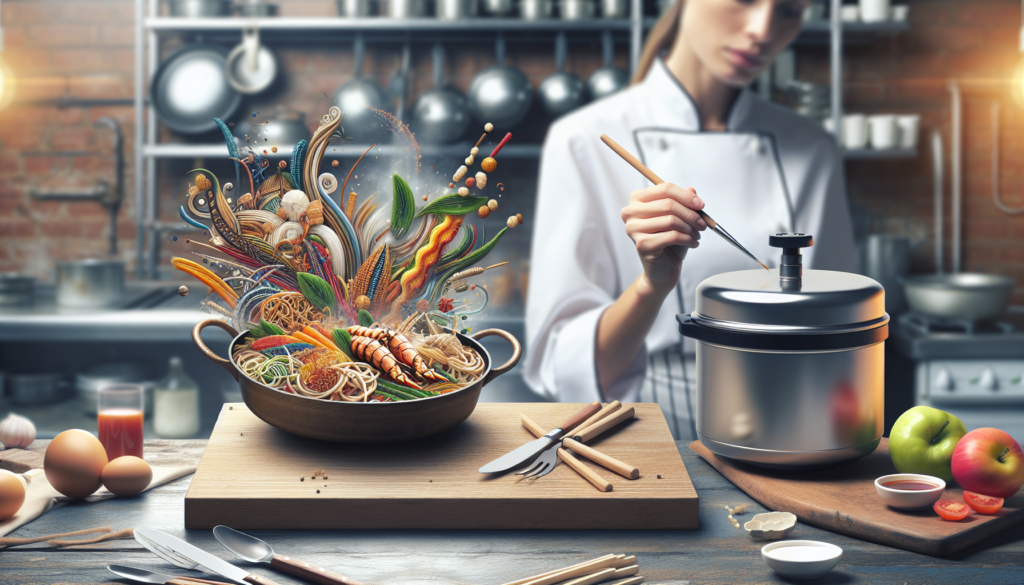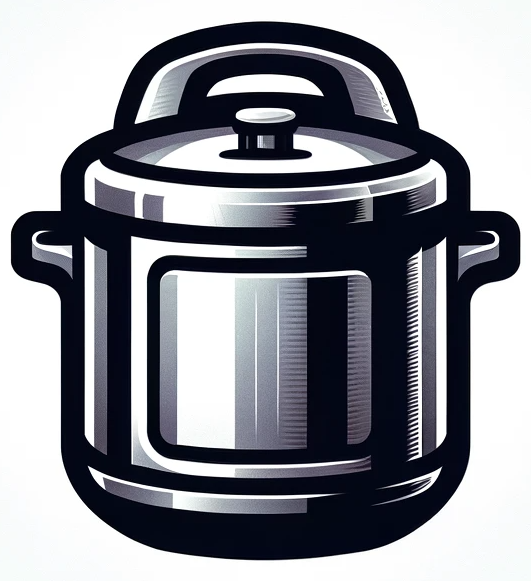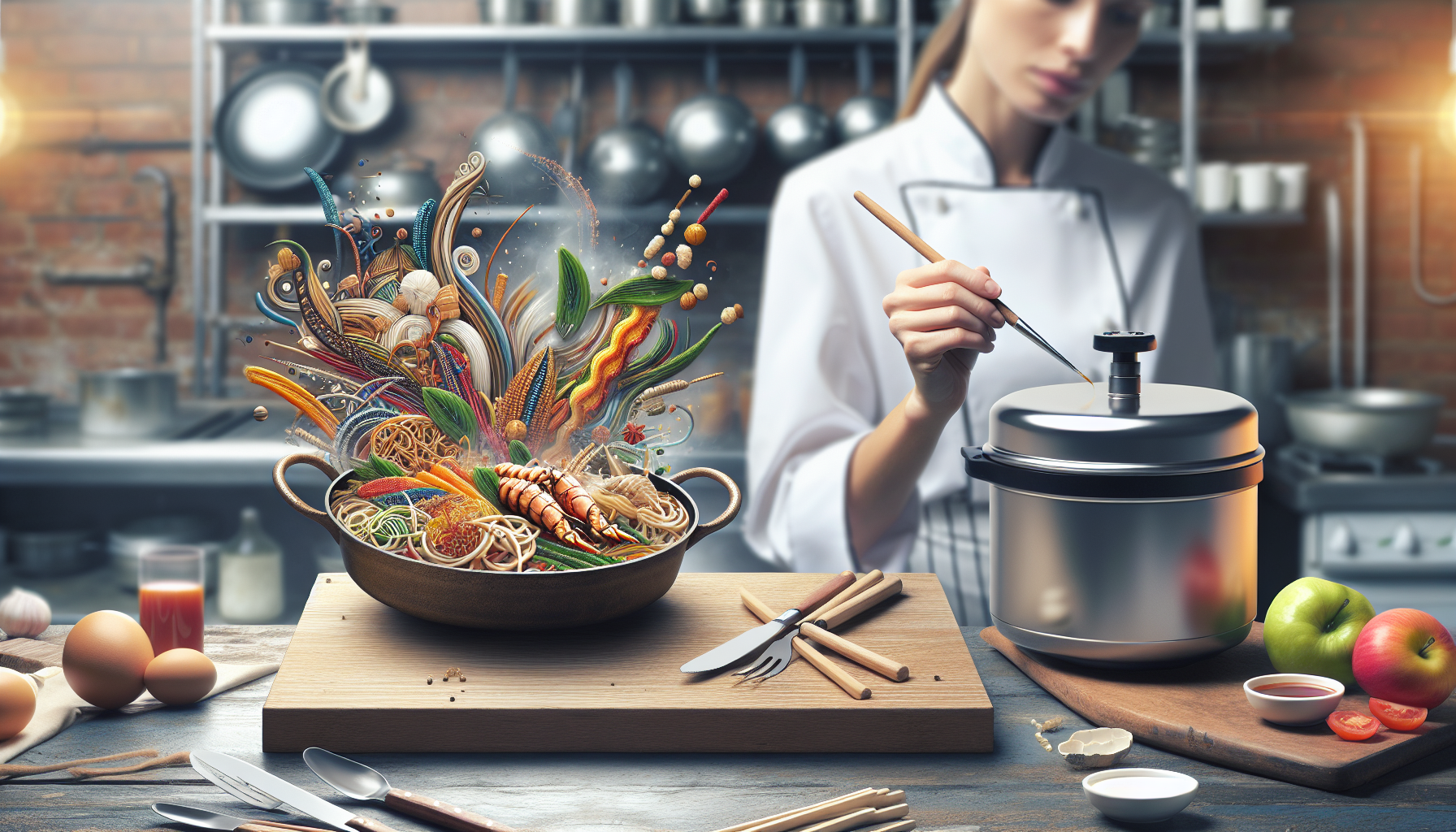If you’ve ever wondered why professional chefs rarely rely on pressure cookers, then this article is for you. While pressure cookers are a common household kitchen appliance known for their efficiency and ability to cook food rapidly, they are surprisingly absent from the kitchens of professional chefs. In this article, we will explore the reasons behind this culinary phenomenon and shed light on why pressure cookers haven’t made their way into the realm of professional cooking. Whether you’re a home cook curious about the secrets of the restaurant industry or simply intrigued by the choices chefs make, join us as we uncover the mystery of why don’t chefs use pressure cookers.

CHECK OUT PRESSURE COOKERS ON AMAZON
Pressure Cookers: A Brief Overview
Pressure cookers are versatile kitchen appliances that have gained popularity in recent years due to their ability to cook food quickly and efficiently. They are specially designed pots that seal tightly to create a high-pressure environment, which allows food to cook faster than conventional methods. By trapping steam and increasing the pressure inside the cooker, the boiling point of liquids rises, allowing food to be cooked at higher temperatures. This results in reduced cooking times and tender, flavorful dishes.
Definition of a pressure cooker
A pressure cooker is a sealed pot equipped with a locking lid and a pressure release valve. It is designed to increase the pressure inside the pot, effectively raising the boiling point of water or other liquids. This high-pressure environment allows food to cook at a faster rate, reducing cooking times significantly.
How pressure cookers work
Pressure cookers work by creating a pressurized environment that increases the boiling point of liquids inside the pot. As the liquid reaches a high temperature, steam is generated, building up pressure inside the cooker. The trapped steam raises the internal pressure, which, in turn, increases the temperature. This accelerated cooking process helps to break down tough fibers in meats and vegetables, resulting in tender and flavorful dishes.
Advantages of using pressure cookers
Using a pressure cooker offers several advantages in the kitchen. The most prominent benefit is the dramatically reduced cooking time. Pressure cookers can cook food up to 70% faster than traditional methods, making them a time-saving tool for busy cooks. Additionally, the high-pressure environment helps to retain more nutrients and flavors in the food being cooked. The sealed pot retains moisture and prevents evaporation, resulting in moist and succulent dishes. Pressure cookers are also energy-efficient, as they require less heat and cooking time to achieve the same results as conventional cooking methods.
Limitations of Pressure Cookers in Professional Kitchens
While pressure cookers offer numerous advantages in home kitchens, they have limitations that make them less suitable for professional culinary settings.
Lack of Control over Cooking Process
One major limitation of pressure cookers in professional kitchens is the lack of control over the cooking process. Pressure cookers rely on precise timing and pressure levels to achieve the desired result. However, this lack of control can be problematic for chefs who prefer to have immediate control and the ability to adjust the cooking process as needed.
Risk of Overcooking
Pressure cookers can be unforgiving, as overcooking food is a common risk. Due to the high temperature and pressure, food can easily become overcooked and lose its desired texture and flavor. This is especially problematic in professional kitchens where consistency and precision are crucial.
Ineffectiveness for Certain Ingredients
Certain ingredients, such as delicate seafood and greens, are not well-suited for pressure cooking. The intense heat and pressure can damage the fragile nature of these ingredients, resulting in a mushy texture and loss of flavor. This limitation restricts the versatility of pressure cookers in professional kitchens, where a wide range of ingredients and cooking techniques are required.
Potential for Flavor Loss
Another limitation of pressure cookers is the potential for flavor loss. While pressure cooking can enhance flavors by quickly infusing ingredients, it may not bring out the complexities and nuances achieved through traditional cooking methods. Chefs who value the subtleties in flavor and seek to create sophisticated dishes may find that pressure cooking falls short in this aspect.
Time Constraints and Pressure Cookers
In a fast-paced professional kitchen environment, time constraints play a significant role in the selection of cooking equipment. While pressure cookers offer quick cooking times, they still require precise timing and monitoring. Professional chefs often prefer immediate control over the cooking process, allowing them to adjust temperature, seasoning, and timing as needed. This level of control is not easily attainable with pressure cookers, as adjustments once the cooking process has started can be challenging.
Cooking Techniques and Pressure Cookers
The use of pressure cookers in professional kitchens can limit the variety of cooking techniques employed by chefs. Pressure cooking is primarily a method for braising, stewing, and tenderizing tough cuts of meat. While this technique is efficient and produces flavorful results, it does not allow for other cooking techniques like searing, grilling, or frying. Chefs who strive for precise and diverse cooking results may find pressure cookers to be limiting in their culinary exploration.
Additionally, pressure cookers can affect the texture and appearance of ingredients. The high-pressure environment can result in a loss of texture and color in vegetables, which may not be desirable in certain culinary creations. As presentation and aesthetics play a crucial role in professional kitchens, pressure cooking may not be the preferred method for achieving desired visual appeal.
High-Pressure Cooking Safety Concerns
High-pressure cooking, as done in pressure cookers, presents safety concerns that need to be addressed in professional kitchens. The high pressure can cause the release of hot steam and gases, posing a risk to the chef and kitchen staff. Proper training and understanding of the equipment’s operation and safety features are essential to prevent accidents and ensure the well-being of everyone in the kitchen.
Safety precautions such as proper sealing and locking of the pressure cooker, controlled release of pressure after cooking, and the use of protective gear are necessary to mitigate risks. The establishment of comprehensive training programs for chefs and kitchen staff is vital to maintain a safe working environment when using pressure cookers.
Presentation and Aesthetics in Professional Kitchens
In professional kitchens, presentation and aesthetics are paramount to create an enticing dining experience for guests. While pressure cookers excel in producing tender and flavorful dishes, the resulting texture and appearance may not meet the high standards of plating and presentation. Ingredients cooked under high pressure can lose their distinct textures, colors, and shapes, resulting in dishes that lack visual appeal.
Certain plating techniques, such as delicate arrangements and precise placement of ingredients, may be challenging to execute with pressure-cooked foods. Chefs often rely on traditional cooking methods that allow for greater control over the appearance of each dish, ensuring visually appealing presentations that captivate diners.
Traditional Cooking Equipment and Chef Skills
Chefs in professional kitchens often prefer using traditional cooking equipment over pressure cookers due to a variety of reasons. Traditional cooking techniques, such as grilling, roasting, and sautéing, offer a level of control and precision that is highly valued in culinary creations. These techniques allow chefs to showcase their skills and expertise in manipulating heat, flavors, and textures to create exceptional dishes.
Moreover, mastering traditional cooking techniques requires years of experience and skill development. Chefs take pride in honing their abilities and utilizing their culinary expertise to create unique and memorable dining experiences. The use of traditional equipment further adds to the authenticity and craftsmanship of their creations.
Quality and Consistency in Culinary Creations
Achieving precise texture and doneness is a vital objective in professional kitchens. While pressure cookers can assist in achieving tenderness, they may not always provide the same level of control and consistency as traditional cooking methods. The time it takes to release pressure and check the doneness of food can vary, leading to inconsistencies in the final result.
In professional kitchens, maintaining the highest quality standards is crucial. The traditional cooking methods employed by chefs allow for a greater level of control and attention to detail, ensuring each dish meets the desired level of quality and consistency. Additionally, traditional methods offer a greater sense of authenticity and preserve the integrity of the culinary creations.
CHECK OUT PRESSURE COOKERS ON AMAZON
Value of Handcrafted Culinary Experience
Professional chefs often prioritize showcasing their culinary skills and craftsmanship through a hands-on approach in the kitchen. The process of manually manipulating ingredients, monitoring cooking times, and adjusting heat levels allows chefs to create personalized and distinctive dishes. This hands-on experience and intimate connection with the food contribute to the authenticity and artistry of the culinary creations.
While pressure cookers offer convenience and speed, they may not provide the same level of satisfaction and creative expression for chefs. The personal touch and artistry that come with traditional methods are highly valued and cherished in the professional culinary world.
Evolving Culinary Trends and Pressure Cookers
As culinary trends continue to evolve, chefs explore alternative tools and techniques to achieve their desired results. While pressure cookers may not be the go-to choice for professional kitchens, they can still find value in specific cooking applications. For example, pressure cookers are often used in slow-cooking methods, where the long, gentle cooking processes can result in incredibly tender and flavorful dishes.
Additionally, alternative tools and techniques, such as sous vide cooking and immersion circulators, have gained popularity in professional kitchens. These modern methods offer precise temperature control and consistency, which can complement and enhance the cooking process.
In conclusion, pressure cookers have their advantages in home kitchens, where convenience and time-saving are often prioritized. However, in professional culinary settings, the limitations of pressure cookers, such as the lack of control, potential for flavor loss, and restrictions on cooking techniques, make them less suitable. Professional chefs value precision, versatility, presentation, and the ability to showcase their culinary skills, which are better achieved through traditional cooking methods. While pressure cookers may find their place in specific applications, they are not the preferred choice for professional chefs striving for culinary excellence.

